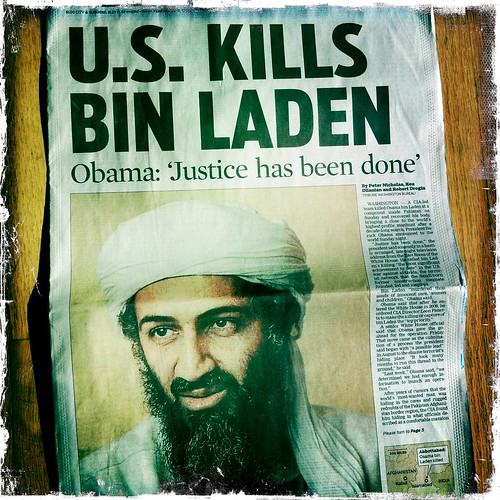I'm quoted in Reuters east Africa correspondent Richard Lough's story "
Bin Laden death will not dampen Somali insurgency." Below is the full quote I provided:
Al-Shabaab is not under the operational control of al-Qaeda but does have close links with it. I think the death of Osama bin Laden will have minimal impact on the al-Shabaab rank and file, nearly all of whom are young Somalis and few of whom are ideologically motivated.
Osama bin Laden was never a major draw for them. The death will have some impact on the leadership of al-Shabaab, about half of which consists of non-Somali foreigners and a small number of Somalis who had a direct connection with the Taliban and/or al-Qaeda. (It is believed there are between 200 and 300 non-Somali foreigners in al-Shabaab; there is a larger number of Somalis with foreign passports from the diaspora.)
The non-Somali component in particular may begin to question the moorings of the organization and cause it to associate even more heavily with al-Qaeda in the Arabian Peninsula (
AQAP). This was a trend well underway before the death of Osama bin Laden.
There is no evidence that al-Shabaab relied significantly on al-Qaeda for funding. It has its own internal sources—taxing, businesses, commerce through the port of Kismayu, etc. Al-Qaeda may have provided some training to al-Shabaab. There conceivably could be a disruption to the extent it was occurring at all.
Nevertheless, the tangible impact on al-Shabaab is likely to be minimal. The psychological impact on the foreigners and small number of Somali jihadists will be greater, but because al-Shabaab is not under the control of al-Qaeda, even this impact may be short-lived.
I doubt that the death of Osama bin Laden will have much of an effect al-Shabaab operations in Somalia. It is currently doing about everything that it is capable of doing. There are few attractive targets in Somalia other than the superior
AMISOM forces.
There could be an effort to carry out an attack in a neighboring country— particularly Kenya, Uganda, Ethiopia, or Burundi — along the lines of the bombings in Kampala in July 2010. Al-Shabaab has the capacity to do this. It will have to weigh carefully, however, the response from the source that it might attack.
Following the bombings in Kampala, Uganda increased its troop presence in Mogadishu. Burundi might do the same. Ethiopia and Kenya could send troops deep into al-Shabaab-held territory, although that could be exactly what al-Shabaab would like to see happen. Any al-Shabaab attack beyond the region would be fairly modest in scope because of al-Shabaab’s limited capacity. But its extensive diaspora network does open that possibility.
AMISOM and the TFG have already begun a major offensive against al-Shabaab in Mogadishu and along the Kenya/Somalia border. I doubt there will be much change in activity as a result of the death of Osama bin Laden.



 And then later on in the article:
And then later on in the article: 


